UPSC Daily Current Affairs - 10th May 2024 | Current Affairs & Hindu Analysis: Daily, Weekly & Monthly PDF Download
GS-I/ Geography
RAFAH
Source: The Hindu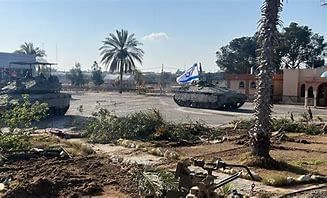
Why in News?
Israel's military has instructed tens of thousands of Palestinians to vacate Rafah, a city in the southern Gaza Strip.
Background:
- This action is prompted by mounting concerns of a potential ground attack in the region.
- Approximately 100,000 individuals in eastern Rafah have been directed to relocate to an extended humanitarian zone along the coast.
About Rafah:
- Rafah, situated in the southern Gaza Strip near the Egyptian border, serves as the capital of the Rafah Governorate in the State of Palestine, positioned roughly 30 kilometers southwest of Gaza City.
Importance:
- Historical Significance: Rafah has been a hub of human habitation since ancient times, known by various names across history.
- Geopolitical Relevance: Due to its proximity to Egypt, the city holds strategic importance for trade and cross-border activities. It also hosts the Rafah Border Crossing, the sole entry point between Egypt and the Gaza Strip.
- Humanitarian Aspect: Rafah has provided refuge for Palestinians, particularly during periods of conflict. As of April 2024, an estimated 1.5 million individuals are seeking shelter in Rafah due to extensive bombardment and ground offensives in other parts of the Gaza Strip.
- Military Operations: The city has been a focal point in the ongoing conflict between Israel and Hamas, with recent military interventions targeting the area due to the presence of Hamas operatives.
GS-II/ Polity and Governance
RIGHT TO PEACEFUL DEATH
Source: The Hindu
Why in News?
A recent article contrasts end-of-life care in India and the West, emphasizing the need for a dignified passing for all.
Background:
- The concept emphasizes the need for a rational system to ensure peaceful deaths.
- It highlights the Right to Peaceful Death as a fundamental aspect.
Key Takeaways:
- The Right to Peaceful Death denotes individuals' entitlement to a dignified passing devoid of unnecessary suffering.
- While not expressly stated in the Indian Constitution, the Supreme Court of India has acknowledged the right to die with dignity under Article 21.
- In the case of Common Cause v. Union of India (2018), passive euthanasia and the right to create advance directives for medical care were deemed legal.
Euthanasia in India:
- Active Euthanasia: Involves intentionally administering lethal substances to end a person's life, remaining illegal in India.
- Passive Euthanasia: Refers to the withholding or withdrawal of life support, enabling terminally ill or vegetative patients to pass away naturally. It has been legalized in certain situations.
GS-II/ Neigbhourhood Relations
The India-Nepal Border Issue
Source: Indian Express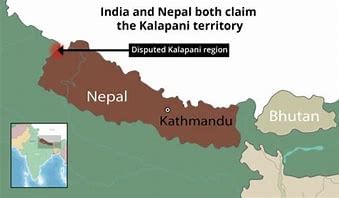
Why in News?
The map featuring certain areas administered by India in Uttarakhand was recently included on Nepal's Rs 100 currency note, leading to a response from India's External Affairs Minister.
- Four years ago, Nepal's Parliament adopted the map by consensus. However, the decision to display it on the currency note has faced skepticism and criticism in Nepal this time.
About the Issue
- The border dispute concerns a 372-sq-km area including Limpiadhura, Lipulekh, and Kalapani at the India-Nepal-China trijunction in Uttarakhand's Pithoragarh district.
- Nepal has long claimed these areas historically and based on evidence.
- Historically, the Treaty of Sugauli following the Anglo-Nepalese War of 1814-16 led to Nepal ceding territory to the East India Company.
Frictions in Bilateral Ties
- The period of goodwill from 2005-2014, during which India helped Nepal transition into a secular federal republic, deteriorated in 2015.
- Relations strained further after the Maoists rejected New Delhi's suggestion to delay Nepal's new constitution until addressing Terai parties' concerns.
- The 134-day blockade of Nepal in 2015 heightened distrust against India, prompting Nepal to seek alternative trade partners like China.
- In 2018, K P Sharma Oli returned as the Prime Minister and in 2020, led efforts to incorporate the disputed 372 sq km into Nepal's map.
GS-II/International Relations
United Nations Counter-Terrorism Trust Fund
Source: The Hindu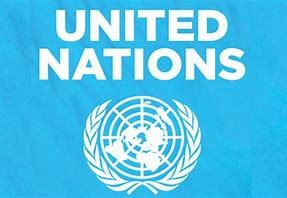
Why in News?
Recently, India contributed $5,00,000 to UN Counter-Terrorism Trust Fund, reaffirming unwavering commitment to global fight against terrorism.
- Overview: The United Nations Counter-Terrorism Trust Fund, initiated in 2009 and later transitioned to the UN Office of Counter-Terrorism (UNOCT) in 2017, serves as a pivotal resource in the global combat against terrorism.
- Contributors: Contributors to the fund include Governments, inter-governmental and non-governmental organizations, private institutions, and individuals, with the option to allocate unearmarked or earmarked funds for specific UNOCT programs.
- India's Contribution: India recently donated $5,00,000 to the UN Counter-Terrorism Trust Fund, which will bolster UNOCT's initiatives, primarily focusing on Countering Financing of Terrorism (CFT) and Countering Terrorist Travel Programme (CTTP).
- UN Office of Counter-Terrorism: The UN Office of Counter-Terrorism, established in 2017, plays a pivotal role in fulfilling General Assembly counter-terrorism mandates. Its functions encompass providing leadership, coordinating counter-terrorism efforts, enhancing capacity-building assistance, advocating resource mobilization, and promoting counterterrorism as a priority within the UN system.
Functions of the UN Office of Counter-Terrorism:
- Leadership: The office spearheads General Assembly counter-terrorism mandates, ensuring coherence and balance in implementing the UN Global Counter-Terrorism Strategy.
- Coordination: It enhances coordination among Global Counter-Terrorism Coordination Compact entities to bolster counter-terrorism efforts globally.
- Capacity Building: The office strengthens the delivery of counter-terrorism capacity-building assistance to Member States, focusing on enhancing their capabilities.
- Advocacy and Resource Mobilization: It amplifies visibility, advocacy, and resource mobilization for UN counter-terrorism initiatives, emphasizing the importance of preventing violent extremism.
GS-III/Environment and Ecology
SAND MINING
Source: The Hindu
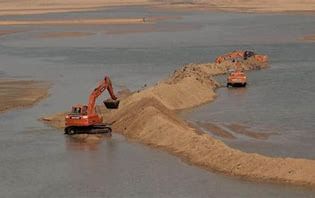
Why in News?
The Supreme Court has requested a report from the Directorate of Enforcement (ED) concerning an illegal sand mining case in Tamil Nadu.
Background:
The Enforcement Directorate (ED) has provisionally seized assets valued at Rs 130.60 crore in connection with an illegal sand mining case in Tamil Nadu.
Key Takeaways:
- Sand mining involves extracting sand from various sources like rivers, beaches, and seabeds.
- Sand is a crucial resource utilized in construction, manufacturing, and other industries.
- Globally, around 40-50 billion tonnes of sand are extracted annually, yet the regulation of sand mining is often inadequate.
Illegal Sand Mining in India
- Illegal sand mining in India is a punishable offense under Sections 378 and 379 of the Indian Penal Code, 1860.
- Natural resources are deemed public property, with the state acting as their custodian.
- Violating this trust by partaking in illegal sand mining can result in severe repercussions.
Social and Economic Impacts:
- Displacement: Communities reliant on riverbanks for their livelihoods, such as fishing and agriculture, face displacement due to sand mining.
- Environmental Degradation: Excessive sand mining disrupts river ecosystems, alters river channels, and contributes to erosion. For example, in the Papagani catchment area in Karnataka, illegal sand mining has caused groundwater depletion and environmental degradation in communities along the river banks in both Andhra Pradesh and Karnataka.
- Biodiversity Loss: Sand mining impacts aquatic habitats, endangering native species adapted to pre-mining conditions.
- Groundwater Depletion: Unregulated extraction affects groundwater levels, impacting water availability for communities.
GS-III/Science and Technology
Sickle Cell Disease (SCD)
Source: Times of India

Why in News?
A 12-year-old from the USA has become the first person worldwide to undergo a gene therapy that could potentially cure sickle cell disease.
Understanding SCD
- Sickle Cell Disease (SCD) is a hereditary blood disorder characterized by abnormal hemoglobin.
- Hemoglobin, found in red blood cells (RBCs), is responsible for transporting oxygen to body tissues.
- Individuals with SCD possess anomalous hemoglobin molecules known as hemoglobin S, which can distort RBCs into a sickle or crescent shape, impeding oxygen delivery to tissues.
Impact on Blood Flow
- In normal conditions, RBCs are disc-shaped and flexible, allowing them to move smoothly through blood vessels.
- However, in SCD, genetic mutations cause RBCs to assume a crescent or "sickle" shape, hindering their flexibility and movement, potentially leading to blockages in blood flow.
Root Cause of SCD
- SCD results from a faulty gene, termed the sickle cell gene, which must be inherited from both parents for an individual to develop the disease.
Symptoms and Stages
- Early Symptoms: Initial signs include extreme fatigue or irritability due to anemia, swollen hands and feet, and jaundice.
- Later Symptoms: Advanced stages manifest as severe pain, anemia, organ impairment, and susceptibility to infections.
Treatment Options
- A bone marrow or stem cell transplant stands as a potential cure for SCD.
- Various treatments aim to alleviate symptoms, reduce complications, and extend life expectancy.
- Gene therapy, a promising avenue, is being investigated as another potential cure, with the UK being the first to authorize gene therapy for SCD treatment.
GS-III/Agriculture
Indian Agricultural Research Institute (IARI)
Source: Financial Express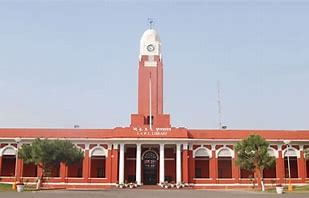
Why in News?
The Indian Agricultural Research Institute (IARI) recently introduced a new high-yielding wheat seed variety, HD 3386.
Background of IARI:
- IARI, also known as the Pusa Institute, was established in 1905 in Pusa (Bihar) with a generous grant from Henry Phipps.
- Initially named Agricultural Research Institute (ARI), it started with departments like Agriculture, Cattle Breeding, Chemistry, Economic Botany, and Mycology, later adding a Bacteriology unit in 1907.
- The institute underwent name changes over the years, becoming Imperial Institute of Agricultural Research in 1911 and then Imperial Agricultural Research Institute in 1919.
- After a destructive earthquake in 1934, the institution was relocated to Delhi in 1936.
Mandate of IARI:
- IARI focuses on basic, strategic, and anticipatory research in field and horticultural crops to improve productivity and quality.
- It conducts research in cutting-edge areas to develop efficient integrated crop management technologies for sustainable agriculture.
- The institute serves as a center for academic excellence in post-graduate education and human resources development in agricultural science.
- It plays a pivotal role in national agricultural research, education, extension, and technology assessment by introducing new concepts and approaches.
Significance of IARI:
- In 1958, IARI was granted Deemed University status and played a crucial role in the Green Revolution of the 1970s in India.
GS-IV/Ethics
Patronage Appointments and Ethics
Source: Microeconomic Insights
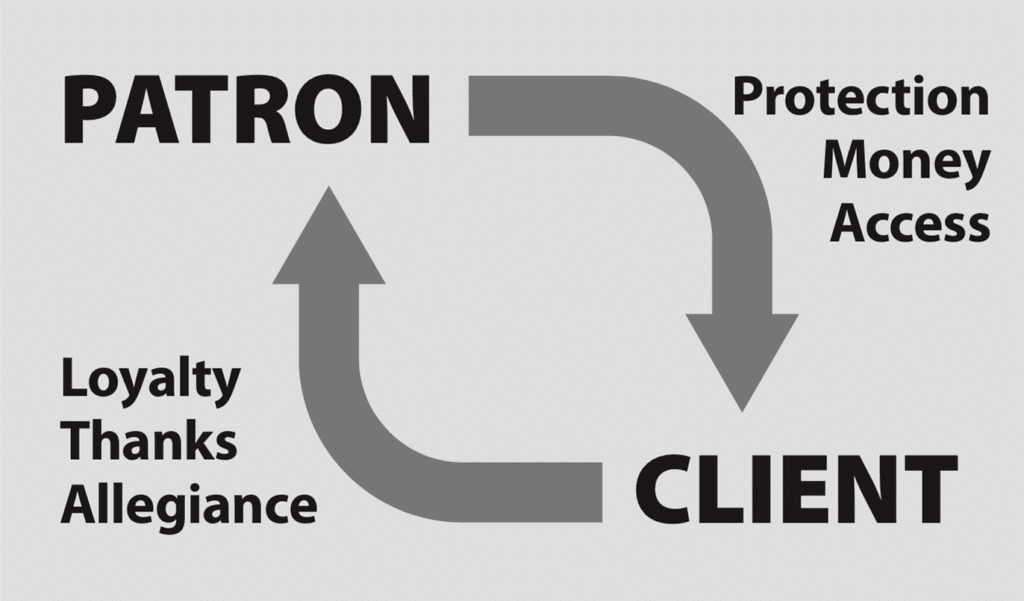
Why in News?
Patronage appointments in the public sector raise several ethical issues that can affect the efficiency and accountability of the civil service.
Background:
- Increasing number of patronage appointments at various levels are a serious concern.
Patronage Appointments:
- It refers to the appointments that are made based on the recommendation or source (personal connections) of an influential person, political leader, public servant, etc. This has not only affected the people involved but has affected the overall Governance of India.
Ethical Issues involved in Patronage Appointments:
- When appointees get their position through patronage, then they are likely to be more accountable to that person rather than to the system.
- Ideally, positions should be awarded based on individuals’ abilities and qualifications. Bypassing meritocracy indirectly compromises the integrity of the system and can result in ineffective or incompetent individuals occupying important roles.
- In the light of appointments through patronage, qualified and capable individuals may feel their efforts and qualifications are not given equal consideration.
- It erodes public trust in the fairness and impartiality of the system and people in power. It leads to a loss of confidence in the administration as a whole. The associated nepotism/favouritism further erodes the trust of the individual in the system.
Impacts of Patronage Appointments:
- It can be used as a means to reward political allies, secure support, or engage in quid pro quo arrangements. It promotes the diversion of resources away from public welfare toward personal gain.
- Incompetent and inexperienced officeholders appointed through patronage struggle to implement policies effectively. This can result in poor policy outcomes, delays, or hindrances in the overall governance process.
- This can lead to a loss of motivation and talent within the public service as individuals feel undervalued and unappreciated.
- Citizens may perceive the system as corrupt, nepotistic, and lacking in transparency. This can weaken the legitimacy of the government and undermine its ability to govern effectively.
- Growth and development are dependent on governance. Ineffective officials who are appointed through a patronage system may not be able to effect optimal utilization of resources.
Way Forward:
- Ensure that institutions have the authority, resources, and mandate to conduct fair and transparent selection processes based on merit.
- Reduce political influence in the appointment process by establishing an independent and non-partisan body responsible for overseeing appointments in public offices.
- Emphasize the importance of qualifications, experience, and competence in the recruitment and selection process.
- Promote the internalization of concepts of public service and integrity to ensure ethical decision-making.
- Foster collaboration with civil society organizations, professional associations, and academic institutions to promote accountability, monitor the appointment process, and advocate for reforms.
|
38 videos|5293 docs|1118 tests
|
FAQs on UPSC Daily Current Affairs - 10th May 2024 - Current Affairs & Hindu Analysis: Daily, Weekly & Monthly
| 1. What is the significance of the United Nations Counter-Terrorism Trust Fund? |  |
| 2. How does sand mining impact the environment? |  |
| 3. What is the importance of the Indian Agricultural Research Institute (IARI)? |  |
| 4. How does sickle cell disease (SCD) affect individuals? |  |
| 5. What are patronage appointments and why is ethics important in such appointments? |  |
















